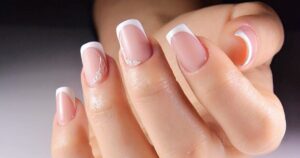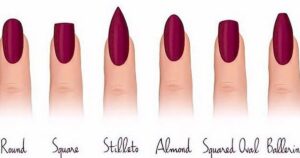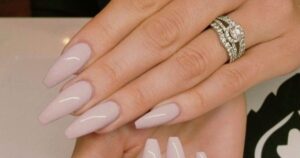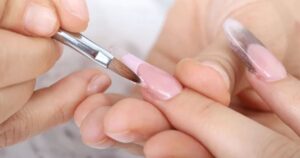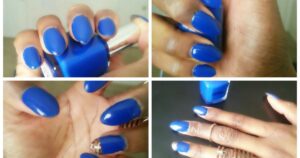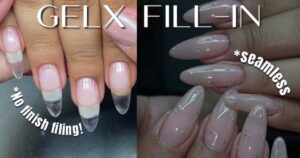In the realm of hair care, the quest for a youthful appearance is ceaseless. As gray hair becomes a prominent feature, many seek alternative methods to restore vibrancy. One such method that has gained attention is the addition of baking soda to gray hair. But what exactly happens when these two elements combine? This article dives into the scientific realm behind this phenomenon, exploring potential benefits, application techniques, common mistakes to avoid, and possible side effects. Join us on this journey as we unravel the potential of baking soda on gray hair.
Key Takeaways
- Baking soda has been suggested as a potential remedy for gray hair, but limited scientific evidence supports its effectiveness in stimulating pigment production.
- Baking soda may help remove product buildup and restore natural shine to the hair.
- Baking soda alone cannot fully reverse gray hair as it does not restore melanin production.
- It is important to consult with a professional before using baking soda on gray hair to ensure optimal results and avoid potential side effects.
The Science Behind Baking Soda and Gray Hair
Frequently, researchers have been exploring the scientific basis behind the effects of baking soda on gray hair. Gray hair occurs due to a natural loss of pigment-producing cells in the hair follicles. Baking soda, or sodium bicarbonate, has been suggested as a potential remedy for gray hair due to its ability to raise the pH level of the hair and potentially stimulate the production of pigment. However, there is limited scientific evidence to support these claims. Baking soda may help remove product buildup and restore the natural shine of the hair, but its ability to reverse or prevent graying is yet to be proven. Further research is needed to fully understand the effects of baking soda on gray hair and its underlying mechanisms.
Potential Benefits of Using Baking Soda on Gray Hair
Using baking soda on gray hair has been suggested as a potential method for reversing the graying process and restoring hair color. Some believe that baking soda can help remove buildup and neutralize the effects of oxidative stress, which may contribute to graying. However, further research is needed to determine the effectiveness and safety of using baking soda for this purpose.
Gray Hair Reversal
Occasionally, individuals may explore the potential benefits of incorporating baking soda into their hair care routine as a means of reversing gray hair. However, it is important to note that there is limited scientific evidence to support the claim that baking soda can effectively reverse gray hair. Gray hair occurs naturally as a result of the reduction of melanin, the pigment responsible for hair color. While baking soda may help to remove buildup and residue from the hair, it does not have the ability to restore melanin production. In order to truly reverse gray hair, more targeted approaches, such as the use of specialized hair products or medical treatments, may be necessary. Therefore, it is advisable to consult with a professional or a dermatologist for more effective options for hair color restoration.
Hair Color Restoration
The potential benefits of incorporating baking soda into a hair care routine for hair color restoration have been discussed extensively. While there is limited scientific evidence to support its efficacy, many individuals claim that using baking soda can help restore hair color and reduce the appearance of grays. Here are three emotional responses that individuals may have when considering using baking soda for hair color restoration:
- Hope: People who are frustrated with their graying hair may feel hopeful that baking soda could potentially restore their natural color.
- Excitement: The idea of a natural and affordable solution for hair color restoration can be exciting, especially for those who prefer to avoid chemical treatments.
- Skepticism: Some individuals may feel skeptical about the effectiveness of baking soda for hair color restoration, wanting more scientific evidence before trying it themselves.
It is important to note that individual experiences may vary, and it is always recommended to consult with a professional before making any changes to your hair care routine.
How to Prepare and Apply Baking Soda to Gray Hair
One effective method to properly prepare and apply baking soda for gray hair is by mixing two teaspoons of baking soda with equal parts of water to create a paste-like consistency. Baking soda, also known as sodium bicarbonate, has been used for various beauty and hair care purposes. When applied to gray hair, it can help remove yellow or brassy tones and restore a more natural, youthful appearance. The alkaline nature of baking soda helps neutralize the acidity in the hair, resulting in a brighter and cooler shade. To apply the mixture, gently massage it into damp hair, focusing on the areas with gray hair. Leave it on for 10-15 minutes and then rinse thoroughly. It is important to note that baking soda should not be used excessively or too frequently, as it can lead to hair dryness and damage. It is recommended to use this treatment once a week or as needed.
Common Mistakes to Avoid When Using Baking Soda on Gray Hair
When using baking soda on gray hair, there are common mistakes that should be avoided. One mistake is using too much baking soda, which can lead to hair texture changes and make the hair feel dry and brittle. Another mistake is leaving the baking soda mixture on the hair for too long, as this can cause scalp irritation and damage the hair follicles.
Hair Texture Changes
During the process of adding baking soda to gray hair, individuals should be mindful of the potential hair texture changes that can occur as a result. Baking soda is known for its alkaline properties, which can have an impact on the pH balance of the hair. This can lead to the following hair texture changes:
- Dryness: Baking soda can strip the hair of its natural oils, leaving it feeling dry and brittle.
- Coarseness: The alkaline nature of baking soda can cause the hair cuticles to open up, resulting in a rough, coarse texture.
- Frizziness: With the natural oils being stripped away, the hair may become more prone to frizz and flyaways.
It is important to note that these texture changes may vary depending on individual hair type and condition. Therefore, it is crucial to perform a patch test and consult with a professional before using baking soda on gray hair. Transitioning into the subsequent section about scalp irritation risks, it is also important to consider potential risks to the scalp.
Scalp Irritation Risks?
Several potential risks for scalp irritation arise when using baking soda on gray hair, including redness, itching, and flaking. Baking soda, also known as sodium bicarbonate, is a common household ingredient known for its versatility and cleaning properties. However, when used on the scalp, it can disrupt the natural pH balance of the skin. The alkaline nature of baking soda can disturb the protective barrier of the scalp, leading to irritation and inflammation. This can further exacerbate existing scalp conditions such as dandruff or eczema. Additionally, baking soda can be abrasive and may cause physical damage to the scalp if not used properly. Therefore, it is important to exercise caution when using baking soda on gray hair to minimize the risk of scalp irritation and potential side effects.
Moving forward, let us now explore the possible side effects of using baking soda on gray hair.
Possible Side Effects of Using Baking Soda on Gray Hair
Although researchers have not yet conducted extensive studies, it is crucial to explore the potential side effects of using baking soda on gray hair. While baking soda is commonly used for various purposes, including cleaning and cooking, its effects on hair are not well understood. Here are three potential side effects that individuals should consider before using baking soda on gray hair:
- Dryness and brittleness: Baking soda has alkaline properties that can disrupt the natural pH balance of the hair, leading to dryness and brittleness.
- Scalp irritation: Baking soda may cause irritation and inflammation on the scalp, especially for individuals with sensitive skin. This can result in discomfort and itching.
- Color fading: Baking soda’s abrasive nature may strip away the natural pigments in gray hair, potentially causing color fading or unevenness.
To minimize the risk of these side effects, it is advisable to consult a professional hairstylist or dermatologist before using baking soda on gray hair.
Tips for Maintaining and Enhancing Results From Baking Soda on Gray Hair
Regularly incorporating these tips into your haircare routine can help you maintain and enhance the results achieved from using baking soda on gray hair. One important tip is to use a clarifying shampoo before applying the baking soda mixture. This will help remove any product buildup and ensure that the baking soda can penetrate the hair shaft effectively. Additionally, it is recommended to use a deep conditioning treatment after using baking soda, as it can be drying to the hair. This will help restore moisture and prevent any potential damage. Another tip is to limit the use of baking soda to once or twice a month, as frequent use can lead to over-stripping of natural oils. Lastly, it is important to protect your hair from excessive heat styling and UV exposure, as these can cause further damage and affect the results achieved from using baking soda. By following these tips, you can maintain healthy and vibrant gray hair while reaping the benefits of baking soda.
Frequently Asked Questions
Can Baking Soda Completely Reverse Gray Hair?
Baking soda does not have the ability to completely reverse gray hair. While it may have some temporary effects such as removing buildup or adding volume, it cannot change the pigmentation of the hair follicles.
How Long Does It Take to See Results When Using Baking Soda on Gray Hair?
The time it takes to see results when using baking soda on gray hair varies depending on individual factors such as hair type, porosity, and the frequency of use. It is recommended to consult with a professional for personalized advice.
Is It Safe to Use Baking Soda on Colored or Dyed Hair?
Using baking soda on colored or dyed hair may cause damage and strip away color. It is not recommended as a hair treatment for colored hair. It is best to consult a professional stylist for appropriate hair care products.
Can Baking Soda Cause Hair Damage or Dryness?
Baking soda has the potential to cause hair damage and dryness due to its alkaline nature. It can strip away natural oils, disrupt the pH balance, and weaken hair strands. It is important to use caution when considering its use on gray hair.
Can Baking Soda Be Used as a Permanent Solution for Gray Hair?
Baking soda is not a permanent solution for gray hair. While it may temporarily lighten hair due to its alkaline properties, it cannot permanently change the color of hair or reverse the graying process.
Conclusion
In conclusion, the use of baking soda on gray hair shows promising potential as a natural remedy. Its alkaline properties may help restore the hair’s natural color by neutralizing the buildup of hydrogen peroxide. However, it is important to use baking soda properly and avoid common mistakes to prevent any potential side effects. Additionally, maintaining and enhancing the results from baking soda on gray hair can be achieved by following proper hair care practices. Further research is warranted to fully understand the efficacy and long-term effects of using baking soda on gray hair.


